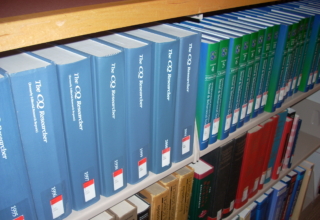
Insights and Lessons from the Project
Collaborative Research
In undertaking a collaborative research project, it is helpful to spend some time at the outset getting a sense of participants’ interests, skills and how they frame their ability to contribute to the project. It’s also helpful to discuss the nature of the collaboration and work out details about shared responsibilities as well as ownership of the intellectual properties which result.
Collaborative projects would also significantly benefit from leadership by someone who is familiar with research and–more importantly–project management. Scheduling meetings, agenda preparation, follow through on discussions and agreements is very time consuming and requires as much (if not more) effort than the work of conducting the research.
A Research Culture
The Development of Psychotherapists study garnered many thousands of responses globally; the Development of Coaches study response was quite small. Why is this? I suggest there are some significant differences between the two groups. Presently, the field of coaching does not have a research culture. Except for some subgroups of coaches (e.g. academics, those trained in psychology or a similar field, organizational development specialists who are accustomed to outcome metrics and measures), research is not a part of the working vocabulary nor is it regarded as relevant to coaching skills and practice.
The professional education of therapists provides at least a familiarity with the forms and standards of social science research; coach training does not generally address this. Therefore, many coaching practitioners are not familiar with (or may be put off by) the level of detail required for good data collection nor do they have a basis for being discerning consumers of coaching research. Thus, the survey may have seemed overly long and personal. It’s interesting to note that many of the therapists who took David’s original survey found that the experience provided them with a useful (and for some enjoyable) opportunity to reflect on themselves, their practices and their professional journey. Coaches, by contrast, suggested that the level of detail was burdensome.
Download Article 1K Club














